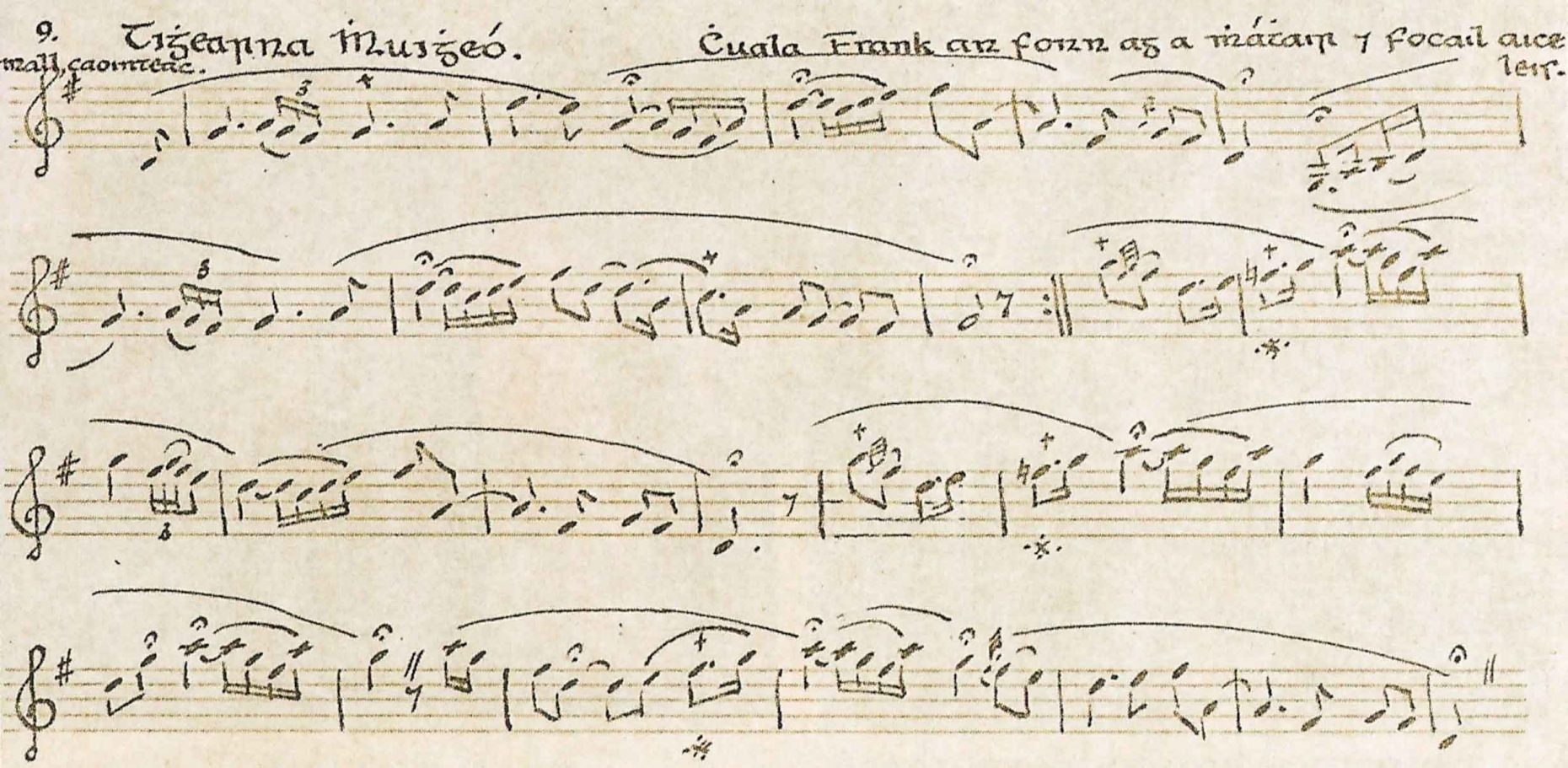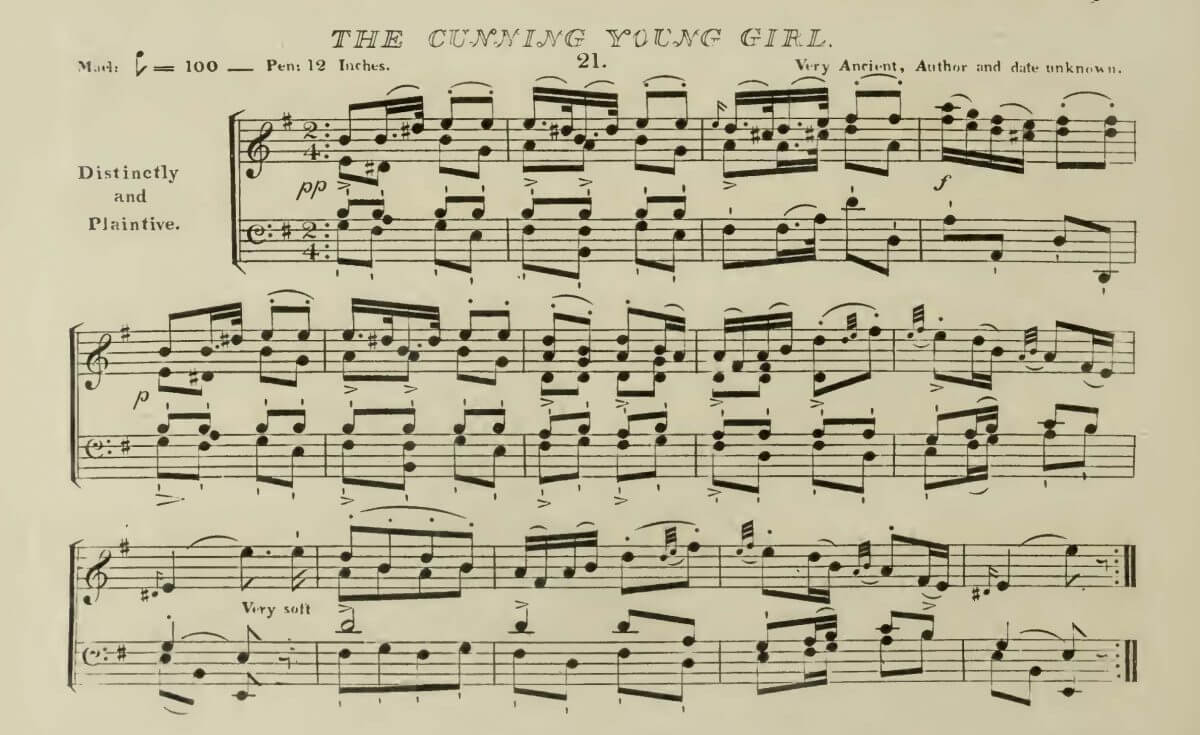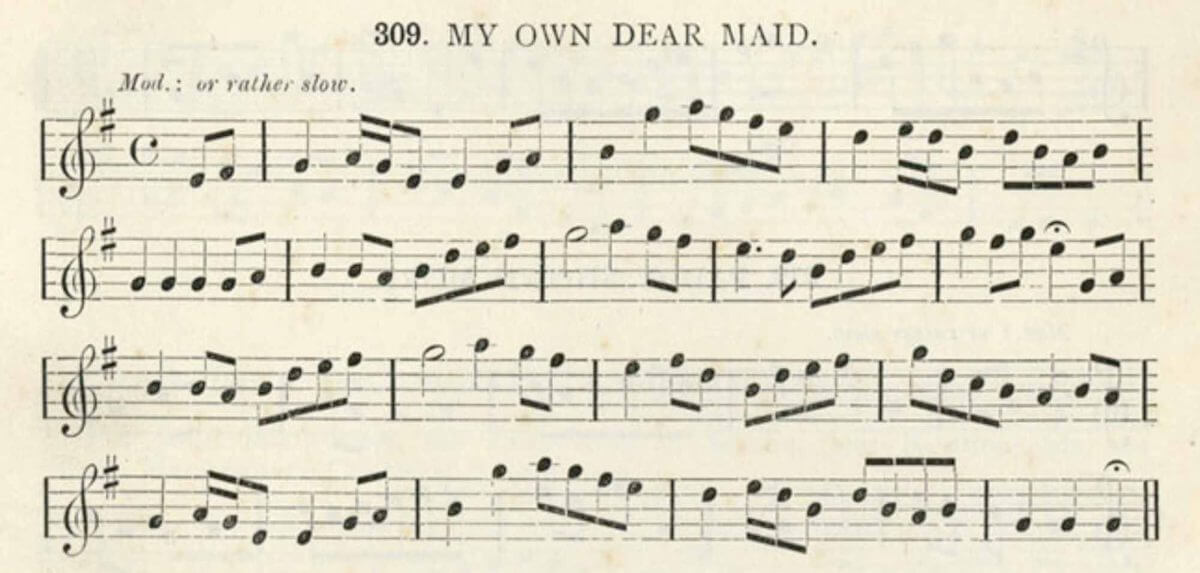Frank Cassidy (Teelin, Co. Donegal) transcribed by Séamus Ennis 15.9.43 (NFC-MM-020-009)1. (See playlist for audio examples).
See also Lord Mayo.
Very broadly speaking and with some notable exceptions, as a slow air the tune Tiarna Mhaigh Eo exists in two main versions: the Donegal version as can be heard in the playing of musicians such as Frank Cassidy2 and John Doherty3 (see playlist), and another popular version generally found more to the south of the country. The most obvious difference to the song/march air is a change in both cases to a major mode. Some exceptions to these two may be found in the playing of Mickey Doherty4 and a more distant if not altogether different tune from Néillidh Boyle5.
In Ennis’s transcription (above) from Frank Cassidy, although the a-part is somewhat similar in contour to the song/march, the b-part might be interpreted as having occasionally shifted the emphasis a quaver earlier to the G, changing the impression of the tune considerably.
Related to this is the unusual and not very widely played version from John McFadden and James Early from around 19036 offering a very rare example of duet slow air playing:
John McFadden and James Early – Lord Mayo7
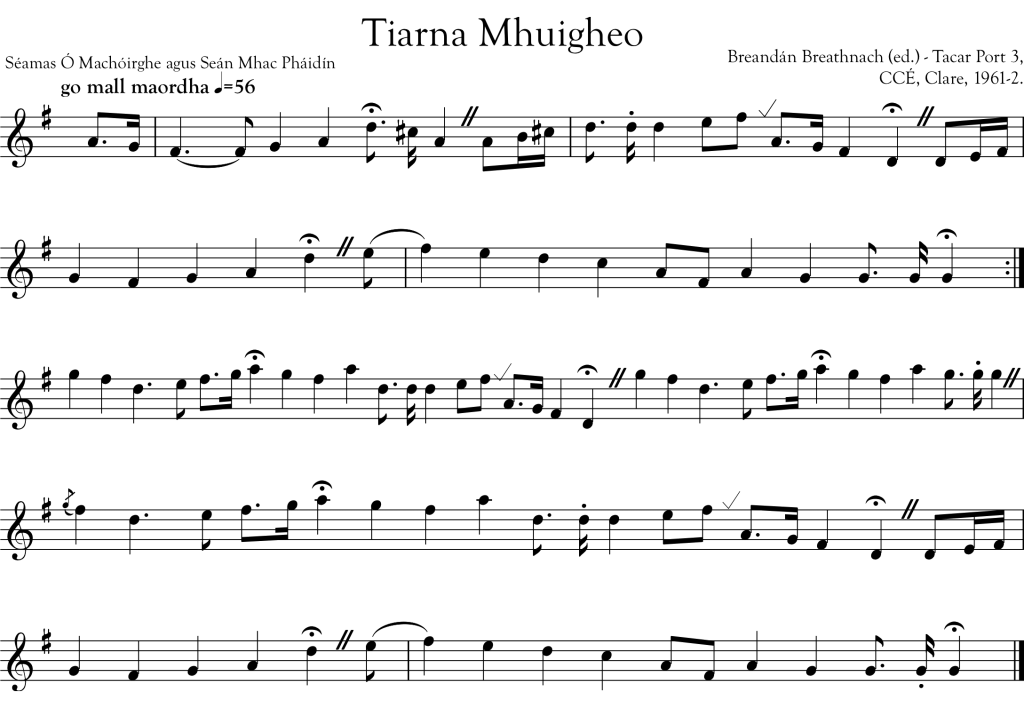
Below can be seen the likely source as given by piper Turlough MacSweeney (Gaoth Dobhair, c.1831-1916) to Early8: 
In their performance, the quaver shift occurs also in the a-part along with a change of mode presenting D as tonic thus obscuring its relationship to the song/march air although this becomes obvious when seen written down in McSweeney’s source version and compared with Breathnach’s transcription (n.b. where the sixth note in the last bar of each part should be G).
It is difficult to think of another example where a simple rephrasing gives the impression of a totally different piece and judging from the source version it seems likely that the idea (in the a-part at least) is an invention of Early and McFadden.
In another main version of the tune, perhaps the most well known (see The Cheiftains in playlist), the a-part bears a resemblance to that of the Donegal version while the b-part arguably somewhat less so. Ó Canainn9 includes an F♮ at one point, although most performances tend to stay within the key signature:
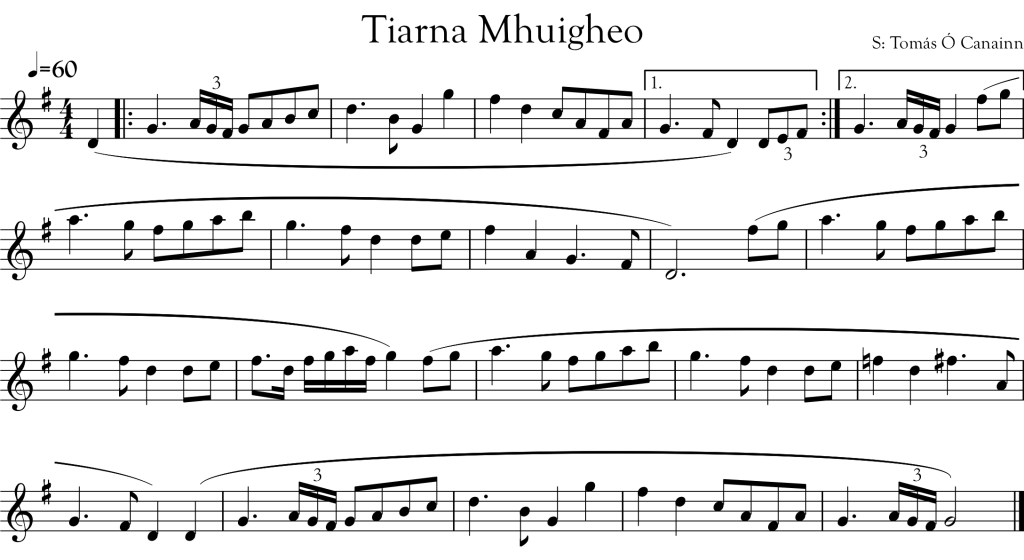
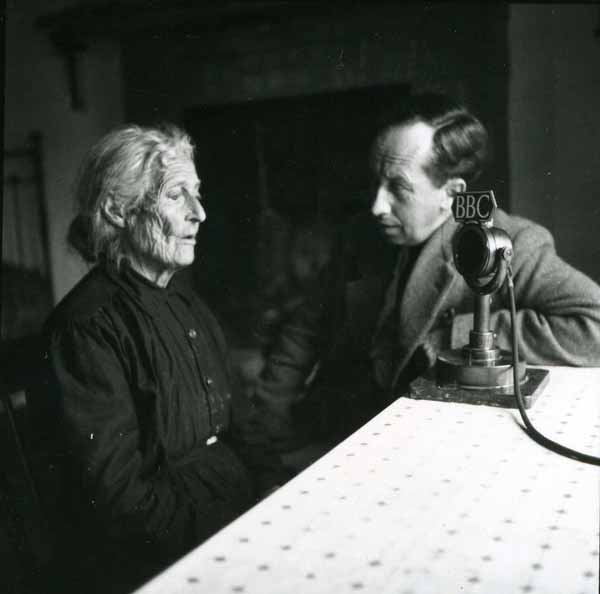
To conclude this selection, is a 1953 recording of Sheila Gallagher from Middle Dore, Co. Donegal at 90 years of age, which is perhaps if at all, only very faintly related to the above.
Sheila Gallagher – Tighearna Mhuigheo10
See also Lord Mayo.
- Ríonach Uí Ógáin (ed.), Going to the Well for Water: The Séamus Ennis Field Diary 1942-46. Cork University Press, 2009, p101.
(n.b. incomplete: should conclude in a manner similar to 2nd beat bar 5 to bar 9). - Frank Cassidy – Níl Gar Ann!, Cairdeas na bhFidiléirí. (Listen here)
- John Doherty – (double LP; retitled Taisce – The Celebrated Recordings when reissued on CD in 1997 – Gael Linn CEF(CD) 072; compiling recordings dating from a session organised by Francis Rohleder (John Doherty’s niece) in either 1974 or ’75), (1978/1997)
- Mickey Doherty – Tuning the Radio RTÉ, 2010, https://open.spotify.com/track/3EDWcMi5ZNJQp9655tFuTL
- Neillidh Boyle, A Feeling In The Blood, Cairdeas na bhFidiléirí, 2011, https://donegalfiddlemusic.bandcamp.com/track/tiarna-mhuigh-eo
- Many thanks to Emmett Gill for supplying this date and other information on the recording.
- Although unconfirmed, possibly: The Kildare fancy, Lord Mayo, (sound recording), James McFadden [sic]; James Early, (Sound Cylinder), ITMA Reference:2903-CYL, [s.n.]
- Dunn Family Collection / Ward Irish Music Archives, MS00-002-20, “The Lord of Mayo as sent to Sergt. Early by Charles McSweeney”. (Link)
- Tomás Ó Canainn, Traditional slow airs of Ireland [Book & double CD]. Ossian, Cork, 1995.
- Sheila Gallagher, Middle Dere, Donegal 1953. Tape 3 [20:18], Peter Kennedy Collection, British Library Sounds, Shelf mark C604/525, Recording date 1953-08-24. https://sounds.bl.uk/World-and-traditional-music/Peter-Kennedy-Collection/025M-C0604X0525XX-0001V0
